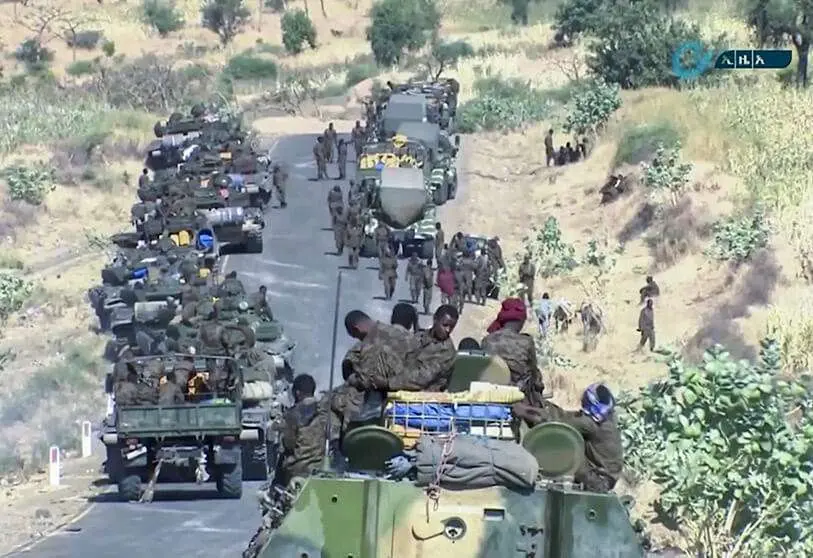The Ethiopian Army bombards the capital of Tigray with heavy artillery

The Ethiopian army bombarded Mekele, the capital of Tigray, where the federal government has started a war with the People's Liberation Front of Tigray (PFLT), on Saturday, diplomatic sources informed Efe.
"So far we have identified the presence of strong explosions in the central part of Mekele and another explosion in the outskirts," the diplomat said, who indicated that facilities belonging to the PFLT have been attacked.
According to a statement of the Tigray regional government, published by Tigray Media House, "since yesterday, Abiy Ahmed and the Eritrean forces have been bombing with heavy artillery", today "mainly against civilian places and infrastructures".
On 26 November, the prime minister of Ethiopia, Abiy Ahmed, ordered the final attack on the rebel authorities of the Tigray region and promised "great care" not to injure civilians in the deployment to take Mekele, which has a population of nearly half a million.
Lieutenant General Hassen Ibrahim, head of the Drainage Department of the National Defence Force, stated in a statement that the army has taken control of the town of Wukro, some 50 kilometres north of Mekele, and will control Mekele in a few days, according to the Ethiopian website fanabc.com.
The bombing of the capital of Tigray follows yesterday's meeting in Abiy with former presidents Joaquim Chissano (Mozambique), Ellen Johnson-Sirleaf (Liberia) and Kgalema Motlanthe (South Africa), who were sent by the African Union (AU) to mediate in the war in which the prime minister rejected dialogue as a solution.
The only dialogue envisaged by the president is with "political parties operating legally in the region" and with representatives of civil society.
For now, the Ethiopian prime minister, winner of the Nobel Peace Prize in 2019, has ignored international calls for a cessation or reduction of hostilities against the FPLT, the party that governs Tigray, the region bordering Eritrea and Sudan.
Since Abidjan ordered the offensive against the FPLT on 4 April in response to an attack by Tigrayan forces on a federal army base in the region, hundreds of people have been killed and more than 43,000 Ethiopians have fled to neighbouring Sudan.
Although the fighting began on the 4th, the Tigray dispute began with the re-founding of Ethiopia after the fall of the communist regime in 1991, when a policy of ethnic federalism was promoted, in which all ethnic groups are supposed to have equal value and representation.
However, the FPLT-which represents 5 percent of Ethiopia's 110 million people-has since led the ethnic coalition that formed the ruling Ethiopian People's Revolutionary Democratic Front (EPRDF).
This hegemony lasted until the appointment in 2018 of Abiy, a young politician of Oromo origin, as prime minister, who wanted to extirpate ethnicity from politics by re-founding the EPRDF in the Prosperity Party (PP), from which the FPLT disassociated itself.
After the general elections, which were due to be held in August by the COVID-19, were postponed, the FPLT held regional parliamentary elections in September, which the central government called illegal, and is therefore seeking to restore "constitutional order" in Tigray.
Furthermore, since 5 October, the date on which Abiy's mandate theoretically expired, the Tigray government has not recognised the authority of the federal executive.
The conflict has become an international dispute following the attack by the PFLT on the night of 14 November in Eritrea-a country allied with the Ethiopian government-on installations, including the airport of Asmara, the capital, "used to carry out attacks in Tigray".
According to a security alert issued by the US embassy in Asmara, on the night of 27 November "a loud noise was heard, possibly an explosion". The US Embassy urged its citizens in the country to continue to be "cautious" and to "remain in their homes (when not at work), make only essential travel and remain aware of the ongoing hostilities in the Tigray region of Ethiopia.








